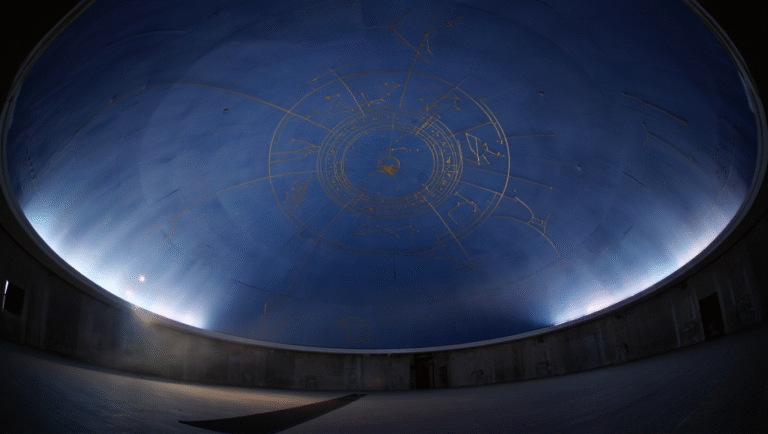How to Read Astrocartography Maps
If you’ve ever wondered why some places just “feel right” and others never quite click, you’re not alone. The intersection of geography and astrology—astrocartography—has helped thousands of people decide where to live, travel, or even build a business. But those maps with all the colorful lines? They can look like spaghetti at first glance. Let’s break down exactly how to read your own astrocartography map, step-by-step, with no jargon and plenty of practical tips. You’ll be able to get started in just 15 minutes, even if you’ve never looked at a birth chart in your life.
What Is Astrocartography, Really?
Astrocartography is a tool that maps your birth chart planets onto the globe, showing you where their influence is strongest. In plain English: it’s like a personal weather map for your energy, highlighting global “hotspots” for love, career, growth, or relaxation. Think of it as the GPS for your astrological sweet spots.
“Astrocartography doesn’t predict your destiny—but it does reveal which places naturally amplify certain themes in your life.”
*No magic, no fate. Just your birth data, mapped onto the world, for your exploration.*
Case Study: Moving for Career Growth
Let’s say you’re considering a move from Chicago to Seattle for a new job. Your friend says, “Check your astrocartography!” You pull up your map and see a bold red line—your Jupiter MC (Midheaven) line—runs right through Seattle. What does that mean? In astrocartography, the Jupiter MC line is associated with public recognition, growth, and career luck. This doesn’t mean you’ll automatically become CEO—but it does suggest Seattle could be a place where career opportunities flow more easily.
How to Read Your Astrocartography Map in 15 Minutes
Here’s a beginner-friendly, science-respectful way to get actionable info from your map without a PhD in astrology.
Step 1: Gather Your Info
- Exact birth date (month, day, year)
- Exact birth time (to the minute, if possible—ask your parents, check your birth certificate, or use an approximate time if you have to)
- Birthplace (city, state/country)
Why so picky about time? Even a 30-minute difference can shift planetary lines by hundreds of miles. If you’re unsure, you can still get a general sense, but results will be less precise.
Step 2: Generate Your Map
Use a reputable free tool:
- Astro.com’s AstroClick Travel – Simple, free, and detailed explanations.
- Astro-Seek Astrocartography – Interactive and user-friendly.
Enter your data, and you’ll see a world map crisscrossed with colorful lines. Don’t panic. You’ve got this.
Step 3: Decode the Lines
Each line represents a planet’s influence at a specific angle as it passes over a location. The main types are:
- Ascendant (AC): Personal identity, beginnings
- Descendant (DC): Relationships, partnerships
- Midheaven (MC): Career, reputation
- Imum Coeli (IC): Home, family, roots
Each planetary line (Sun, Moon, Mercury, etc.) overlays one of these four “angles.” Here’s what they mean in practice:
| Line Type | Theme | When to Consider |
|---|---|---|
| Sun MC | Leadership, visibility | Launching a business, career moves |
| Venus DC | Love, social blessings | Dating, making friends, social life |
| Jupiter AC | Growth, optimism, luck | Studying, travel, fresh starts |
| Saturn IC | Responsibility, discipline | Family matters, buying property |
Tip: Not every line will feel “good”—Saturn lines, for example, can be challenging for some, grounding for others. It’s about fit, not fate.
Step 4: Zoom In on Your Places of Interest
Look at the locations you’re curious about—where you live now, where you want to travel, or places that just call to you. Which lines run close by? Planetary influences are strongest within about 100 miles (160 km) of a line, but some people feel them up to 300 miles away.
- Crossing lines = mixed energy (think: growth with challenge, or love and learning at once)
- No lines = neutral, “background” energy (sometimes just what you need!)
Step 5: Interpret with Common Sense
Don’t uproot your life over a map line alone. Use astrocartography as one tool—alongside job prospects, cost of living, family needs, and gut feeling. If you’re relocating, consider spending a few days in your “hotspot” first to see how it feels in real life.
Astrocartography Tools & Resources
- Relocation Astrology: Journey to Where You Belong by Amy Herring – Excellent for beginners, with practical exercises.
- AstroClick Travel at Astro.com – Interactive, free, and well-explained.
- Astro-Seek Astrocartography – Great for experimenting with your chart.
- Astrocartography: The Astrology of Place by Jim Lewis – The classic, slightly technical but thorough.
Recommended Astrocartography Chart Prints
If you love seeing things on your wall, these chart prints make great gifts (for yourself or a friend):
-
Personalized Astrocartography Map Print
Pros: Customizable, beautiful decor
Cons: Not interactive
Best for: Gifts, home office, visual learners -
Astrocartography Poster
Pros: Affordable, ready to hang
Cons: Requires your own chart data
Best for: Astrology fans, students
Quick-Start Astrocartography Checklist
- Collect your birth time and place (as exact as possible)
- Use Astro.com or Astro-Seek to generate your map
- Identify key planetary lines near locations of interest
- Look up what each line means for you (see table above or consult a book)
- Combine this info with practical considerations: job, family, budget
- For big moves, do a trial visit—see how you feel in person
Astrocartography FAQs
Q: Do I have to move to benefit from a line?
A: Not at all! Even traveling, working remotely, or building connections with people in those places can “activate” the energy.
Q: My dream city has a “challenging” line. Should I avoid it?
A: Not necessarily. Sometimes, growth comes through challenge. It’s about what you want to focus on at this stage of life.
Q: Is this scientific?
A: Astrocartography is not a hard science, but it’s a useful self-reflection tool. Use it as a complement to practical research, not a replacement.
Summary Table: Popular Astrocartography Books
| Name | Key Feature | Length | Price Range | Amazon Link |
|---|---|---|---|---|
| Relocation Astrology by Amy Herring | Beginner-friendly, exercises | 312 pages | $16–$25 | Check price on Amazon |
| Astrocartography by Jim Lewis | Classic, in-depth | 233 pages | $20–$35 | See today’s deal |
Takeaway: Make Astrocartography Work for You
Astrocartography isn’t about following a map blindly. It’s about adding another layer of insight to your decisions—whether you’re planning a cross-country move, searching for your next big adventure, or just curious about why you love Paris so much.
Ready to try? Grab your info, pull up a free map, and start exploring the world with new eyes. If you want to go deeper, check out the recommended books or gift yourself (or a friend) a custom astrocartography print.
And remember: the best place for you is where your head, heart, and opportunities align.
This post may contain affiliate links. If you purchase through them, it won’t cost you extra, but it helps keep this site running.







